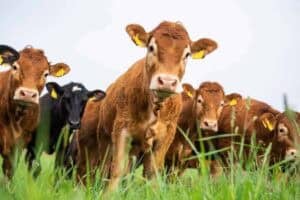This is not a new proposition, nor would it be unique to SA.

A prospective coalition government must be viewed within the context of a pendulum that oscillates between a spectrum of opportunities, versus real tangible challenges and concerns.
It is within this context that I believe it timely to revisit the black farmer developmental agenda, understand its present meaning and potential it holds for the future.
ALSO READ: Black farmers want fair cannabis deal
Prior to 1994, the apartheid government’s policy position on agriculture was fundamentally premised on strong farmer protection mechanisms that insulated them from market threats. This sustained growth and transitional developmental pathways, facilitated by cheap labour reserves, created enabling conditions for uninterrupted incubation.
As a result, the primary function of the then white farmer was to produce. The policy reforms of 1994 catalysed a period of trial and error in the mapping of contextually responsive developmental pathways in attempts to build an inclusive economy.
ALSO READ: Black farmers allege govt officials demand R250K bribe for one to keep farming
I argue that it was during that time that the ANC-led government strategically and implicitly embedded the Reconstruction and Development Program (RDP) into the market-led Growth, Economic and Redistribution (Gear) policy framework.
The implications of this political and economic concession, particularly for agriculture, enabled the state to respond to the immediate political imperatives that spoke to food security, poverty alleviation, redistribution and social equity – while actively pursuing market informed agricultural development that would compete within the agrarian international markets.
The Gear-RDP relationship fundamentally established a normalisation of economic relations between the first and second economy. Secondly, it failed to define and clearly resolve the role of land and agriculture in the economy.
ALSO READ: Black farmers also victims of attacks and land invasions
Consequently, black agricultural activity, synonymous with small-scale agriculture, continues to be dictated to by politics and the sociocultural meanings of land. This has reproduced a structural and systemic treadmill that entraps black farmers into the small-scale paradigm.
The inability of the state to reconcile the role of agriculture in the economy and the failure to establish resilient transitional developmental pathways between the first and second economy, predetermines politics of change and subsequent limitations in transforming SA’s agrarian political economy.
Concurrent to the policy debate is the questionable moral-ethical relationship that has formed between the state and black farmers post-1994. One can attribute this relationship to SA’s political history, that has allowed for the state to assume a paternal role in positioning itself as the rightful custodian of black farmer interests.
ALSO READ: Black farmers are also bleeding
The abuse of power relations, however, is clearly seen when the state – for political expediency – assumes the role of arbitrator between the farmer versus the markets, and farmer and the state, while positioning itself as the farmer’s political custodian, authoritative voice and articulative vision holder – contrary to its own conflicting policy.
A coalition government offers black farmers a leveraging opportunity that has the potential to redefine their relationship with the state and market participation in the agrarian political economy.
I also acknowledge that their success is inseparable from the integral role of the state as a facilitative actor. Therefore, a renegotiated terms of engagement with the state by the farmers is central in navigating domestic and international markets in times of political crisis.
Black farmers must invoke their consolidated political and economic agency to contest policy and markets as a means to advance their developmental needs and interests. This is not a new proposition, nor would it be unique to SA.
ALSO READ: ANC government doesn’t care about giving black farmers land, says DA
For instance, small scale farmers in India in 2020-21 demonstrated how the leveraging of critical mass can be used to contest the state’s unilateral decision-making processes, policy and proposed agricultural reforms with success.
-Maqwelane is a PhD candidate at Rhodes University’s education department.
Catch up with the latest news from The Citizen on WhatsApp by following our channel. To join, click here.






